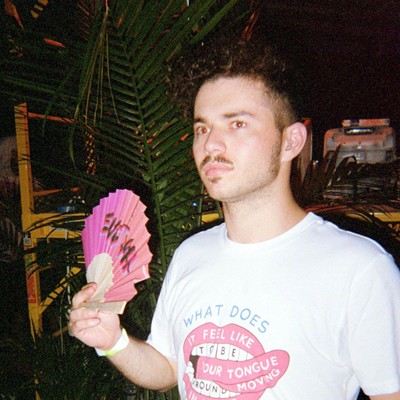Concurrently, however, EDM, the most populist movement in electronic music, seems to have had its moment. If the EDM bubble has not popped outright, then it has surely shrunk. Publications like the Miami Herald have been quick to (heh) herald its demise, and Pitchfork assembled a cheeky timeline charting its rise and ensuing fall. Even if it’s not in its death throes, EDM’s best and brightest days are long behind it. It is the worst of times.
The relationship between pop culture at large and electronic music has always been
Enter Brenmar. Born in Chicago and currently residing in New York City, Brenmar, known to friends and family as William Salas, is part of the vanguard of artists who grew up during the rise of electronic dance music (no, not EDM) in the '90s.
“Growing up in Chicago, I kind of knew what house music was before I even knew that’s what house music was. It was being played on the radio… You’d hear Madonna, followed by ‘Percolator,’” he says, referring to Cajmere’s wildly popular and widely remixed “Coffee Pot (It's Time for the Percolator)."
The fundamental foundations of dance music (in his mind, “a simple repeated vocal, a bassline, and simple drums”) were ingrained in Brenmar from a young age. Even when exploring later musical loves, including hip-hop and R&B, the lessons imparted by house and its myriad subgenres were never far removed from his thoughts. Since abandoning a gig in live drumming to commit full-time to electronic production around 2010, Brenmar has stuck steadfastly to this less-is-more approach.
“When I work on music now I try to reference the simplicity of ghetto house, and how something so simple — or seemingly so simple — can have such a strong effect on the dance floor,” he says. “Sometimes the answer, when I’m working on a track, isn’t adding another synth line or melody. It’s actually trying to consolidate and choose one good one: one good bass line, one good sample loop, or what have you.” It’s possible consolidating is easier said than done for him, and it shows with an aesthetic that is as indebted to hip-hop as it is dance, making him a good fit for his label, the beloved Fool’s Gold.
Maturing in Chicago after house music had already left its mark and inhabiting a New York where club culture had drunkenly stumbled out of the city and unexpectedly conquered the world, Brenmar possesses a well-tuned ear for
Described as simply as possible, it would be fair to say Brenmar’s music blends the immediacy and punch of trap music with the vocal samples and Instagram-ready hooks that comprise many of today’s successful crossover hits. Although he does have a distinct sound, Brenmar consciously tries to toe the delicate line of satisfying one’s individual inclinations while meeting the demands of modern electronic pop.
“I draw heavily from mainstream music, but from underground music as well, and I’m trying to find an equal balance between the two,” he says. “I like to call it the gray zone.” Needless to say, it takes a great deal of skill and flexibility to deftly navigate the gray, especially when fickle audiences at live sets are involved.
“Every new crowd, every new city is a different opportunity to learn. I have my own little tricks as a DJ that I employ to make sure that I satisfy myself and play some new shit,” he elaborates. “An effective DJ gives a little bit of both... When you see the crowd go crazy, and you know why they’re going crazy, it’s very hard as a DJ to not be tempted by that.”
Tomorrow sees Brenmar DJing alongside ES.P at Rec Room, which just underwent a remodeling and is unveiling a new look. No stranger to Miami (having previously held a residency at Bardot), Brenmar is well-acquainted with 305 audiences and is hoping to mix a set worthy of his diverse musical background.
“Having the ability to play massive parties and play at gay parties, Jersey club parties, hip-hop parties… all of that, by default, has informed me in what I make now, how I approach music and how I make my DJ sets,” he says. “I had to learn how to be pretty versatile. Even within New York, you don’t just learn how to play one set.”
Brenmar. 11 p.m. Friday, June 17, at Rec Room, 1690 Collins Ave., Miami Beach; 786-975-2555; recroomies.com. Admission is free; ages 21 and up.











